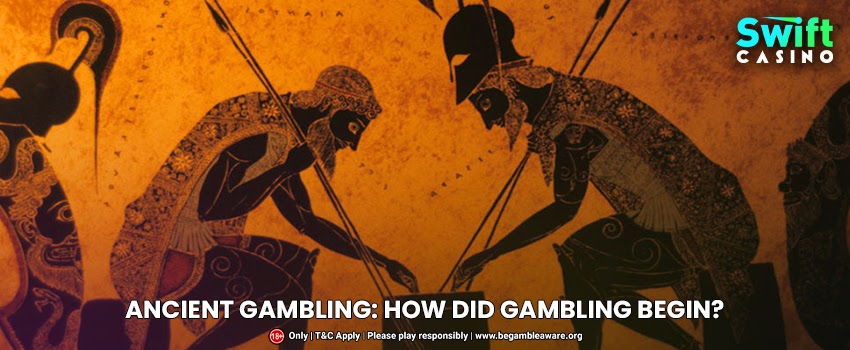The intriguing history of ancient gambling can date back to thousands of years. It was popular throughout different countries. In ancient China, people played a game of chance whose information you will find inscribed on the tiles. In Egypt, people’s favourite quality time was to engage themselves in the exciting game of dice. On the other side of the world if you closely inspect the Greek and Roman pottery, you will come across several instances of people betting on animal sites. All this proves just one thing: Gambling was supposed to be an enjoyable pastime for most people.
Later, somewhere in 200 BC, a game called white pigeon ticket was widely played in China where a certain percentage of the winning amount had to be used to support the State-sponsored activities. Did you know that the world’s two reputed Ivy League Institutions like Yale and Harvard receive one part of their funding from lottery money?
Many historians believe that cards originated in China which then quickly started spreading throughout the continent. Usually, the cards consisted of human figures but gradually as they started becoming popular in different parts of the European countries, the Kings and Queens that we see today became more prominent in the cards during that time.
As the years followed by, gambling started to become more organised. The first series of gambling houses or casinos appeared in 17th century Italy. In 1683, in Venice, Ridotto was set up to offer a more regulated environment of the casino. Eventually, casinos started popping up in different parts of Europe.
In the US, gambling was introduced by the French settlers in the form of roulette in the houseboats of Mississippi which became popular among rich farmers and merchants. Poker whose roots can be traced back to Persia was also seen playing in New Orleans in 1829.
When gambling started getting mechanised, games started becoming more controlled and regulated. The first-ever gambling machine was designed in New York and at the same time, the Liberty Bell also came into existence in San Francisco. The first slot machine was invented in 1976 which forged a way for slot games as we come to know of them today.
Online gambling

The Free Trade and Processing Act of Antigua and Barbuda was passed in 1994 which allowed the casinos to start their online business. The first gambling software was the brainchild of Microgaming. The software was developed in collaboration with CryptoLogic, which is a software company. The first exchange of money took place which laid the foundation of online casinos. In 1996, the Kahnawake Gaming Commission was established to regulate the online activities of gambling websites, and issue gaming licenses to the online casinos and gambling centres around the world. This to raise the standards of accountability and transparency of the online casinos. In 1999, the Gambling Prohibition Act was introduced to prohibit a company from selling casinos to the US citizen. However, it fell through late as in the same year multiplayer online gambling was introduced. In 2003, Playtech introduced live dealer casinos which blurred the lines of physical and virtual reality.
Mobile gambling
The online casino has witnessed many technological advancements. One of them is the advent of mobile gaming. Many players are shifting towards playing games on cell phones. This is because mobiles have made gambling accessible and convenient. You can now play games at any point in time. There is no need to set up the game just like you do for desktops. Many gaming companies have decided to shift their base to mobile gaming sites, knowing the benefits it can gain for both the company and the players. It is said that mobile graphics and interface are better when compared to computer games in terms of gameplay. The mobile gaming industry is expected to grow in the coming few years. So it is fair enough for companies to invest more in advancing mobile games.

Blockchain technology

Cryptocurrencies and blockchain technology are revolutionising the gambling industry. They are emerging as a popular form of payment method and an alternative to the regular methods of payment. Cryptocurrency is said to be safe as it lets people enjoy gambling anonymously and enables swift withdrawal and deposit of money as you do not have to submit any documentation or need any password or user name to sign into the game.
There are some bitcoin users who provide funding to the casinos. And this has been possible by cryptocurrency platforms. They are building the futuristic, cryptocurrency based casino gaming systems that will allow zero-house edge, zero transaction fees and more transparency. Manufacturers are always introducing changes and opportunities to improve blockchain technology.
Future of gambling
The history of gambling is a difficult topic to trace. Nowadays, most of the developments are focused on changing and modernising the gambling industry. They are innovating interfaces, design and devices to ensure smooth gameplay. Even they are creating themes and storylines that are engaging by including virtual reality, augmented reality, motion graphics, one-stop motion, etc. All this carries the possibility of developing the casino industry by leaps and bounds.

